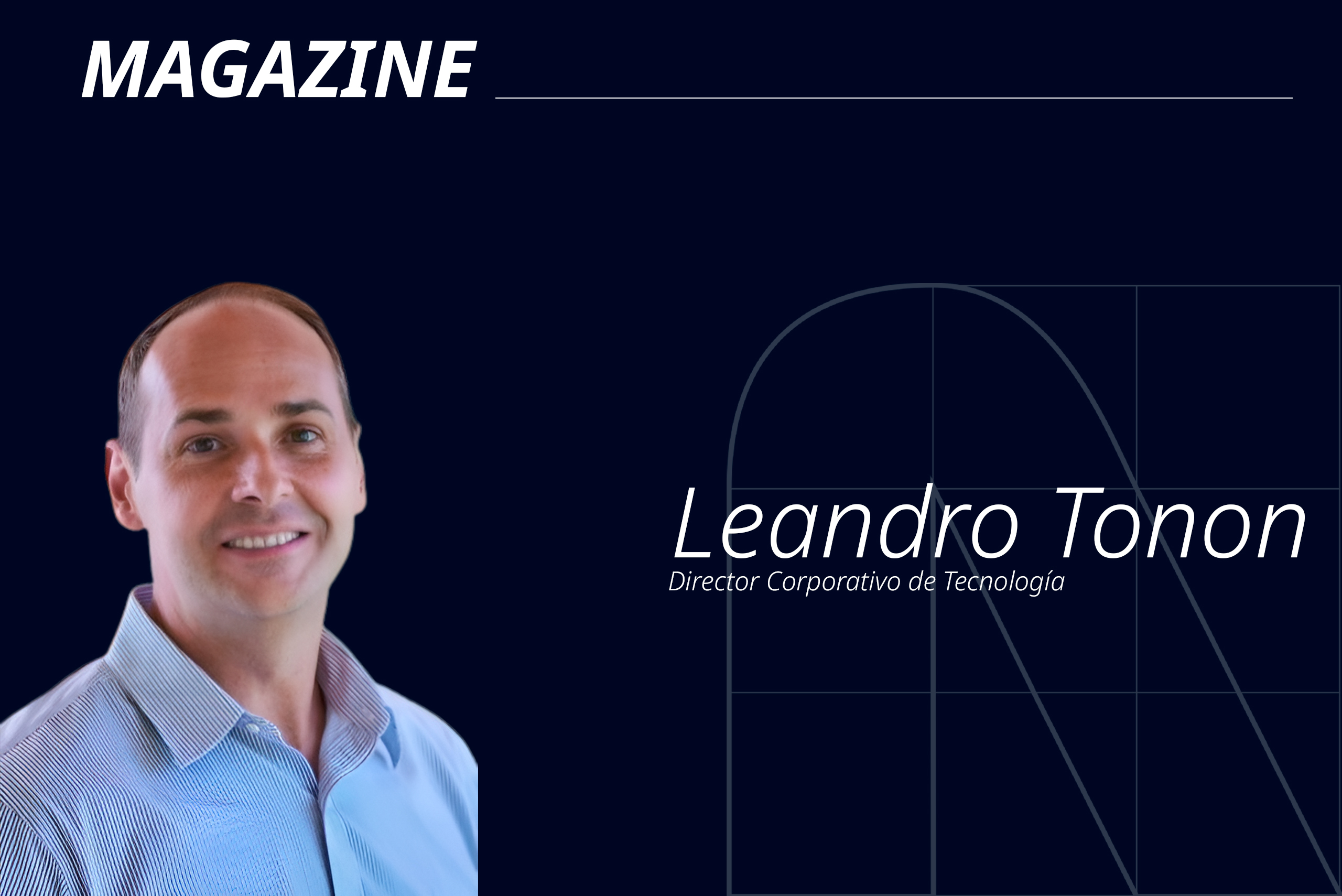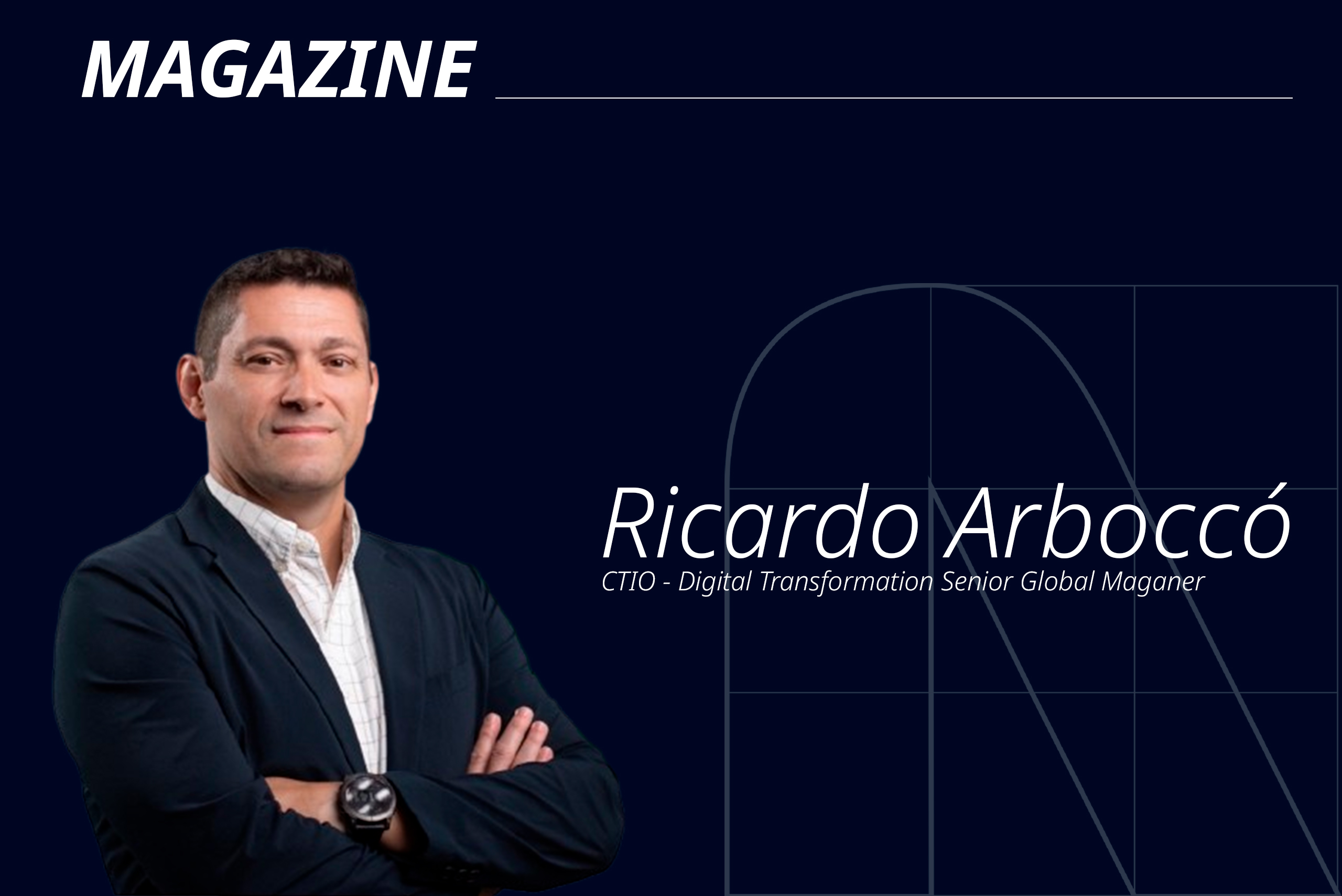
Can you imagine a world where manual processes in the food industry are transformed into intelligent operations led by algorithms? This is how Leandro Tonon, a technology pioneer with more than 26 years of experience, is revolutionizing one of the most traditional industries: food.
From farms that employ advanced sensors to systems that predict customers’ needs before they even know them, Leandro Tonon has led a series of changes that are redefining what it means to innovate in this sector. Today, as corporate director of Pronaca, one of Ecuador’s largest food companies, his mission is clear: to make technology the heart of business transformation.
In this interview, we explore how his disruptive approach and passion for technology are making a difference in the food industry, with a special focus on Artificial Intelligence (AI) as a catalyst for change.
From Small Projects to Big Technological Achievements
What started with a small computer assembly company turned into a stellar career in technology. Leandro has worked in sectors as varied as banking, insurance and food, learning and adapting to every change.
“The power of technology to solve problems and improve lives is what motivates me the most”, he explained. His leadership and focus on collaboration have led him to be an innovator in his field.
The Role of AI in the Feed Business
At Pronaca, AI is a fundamental tool for managing processes, from animal nutrition to distribution logistics. One of the most notable developments is the use of artificial intelligence to estimate animal weights using sensors and cameras, achieving 93% accuracy and reducing complex manual tasks.
“Technology helps us anticipate problems and maintain high quality standards”, Leandro said, highlighting how AI drives efficiency and safety at every step of the production chain.
Digital Transformation in Customer Relationships
Beyond internal processes, Pronaca has transformed the way it interacts with its consumers. Digital platforms, such as self-service portals and AI-powered telesales, have made the company’s products and services more accessible.
“Thanks to technology, we understand our customers better and can offer tailored solutions”, he explained. These initiatives have enabled Pronaca to remain competitive and focused on the needs of its consumers.
How to Foster Innovation in Teams
For Leandro, leading innovative teams involves:
- Create an environment conducive to creativity: Allow employees to experiment without fear of failure.
- Align technology strategies with business objectives: Implement solutions that really add value.
- Empower teams: Empower employees and give them the autonomy to propose new ideas.
“The key is to adopt technologies that solve real problems and not just follow trends”, he said.
Generative AI: Challenges and Promises
Although still at an early stage, Leandro believes that generative AI has enormous potential to change the way businesses operate. From automating repetitive tasks to offering personalized services, this technology is designed to optimize processes and improve the customer experience.
For example, in the food sector, generative AI can analyze large volumes of data in real time to predict consumption trends and adjust production efficiently. In addition, its ability to interact with customers through virtual agents improves customer service, enabling quick responses tailored to the specific needs of each user.
However, Leandro warns that there are still technical challenges to overcome. “Although we have made great strides, we still need to refine certain aspects to achieve optimal levels of accuracy and confidence”, he commented. Over time, these technologies are expected to become essential tools in the food industry.
Advice for New Professionals in Technology
For those interested in technology, Leandro highlights the importance of focusing on areas with great future projection. Two of the most promising are artificial intelligence and cybersecurity.
“Artificial intelligence is revolutionizing all industries, from customer service to mass production. On the other hand, cybersecurity is crucial in an increasingly digital world, where risks are also constantly evolving”, he emphasized.
In addition, he advised the new generations to adopt a continuous learning mentality. In such a dynamic field, staying up-to-date is key. “It is essential to be aware of trends and develop skills that allow you to adapt quickly to changes”, he added.
Finally, he stressed the importance of creativity and collaboration in multidisciplinary teams. According to Leandro, technology should not be seen as an isolated field, but as a bridge to connect ideas and people.
The Future of the Food Sector with Technology
Technology is no longer an option for companies and has become a prerequisite for competing in the global marketplace. In the food sector, its impact extends from optimizing production to customizing customer services.
“Thanks to technology, we can offer healthier, high-quality products, in addition to ensuring biosafety processes that protect both consumers and the environment”, Leandro explained.
On the other hand, technology also opens up new possibilities for sustainability. From efficient use of natural resources to reducing waste in supply chains, food companies have the opportunity to adopt more responsible practices aligned with modern consumer expectations.
Leandro concluded with a powerful reflection: “Technology not only improves our processes, it connects us with our customers in a more meaningful way. It is the bridge that leads us to the future of the food industry.”












